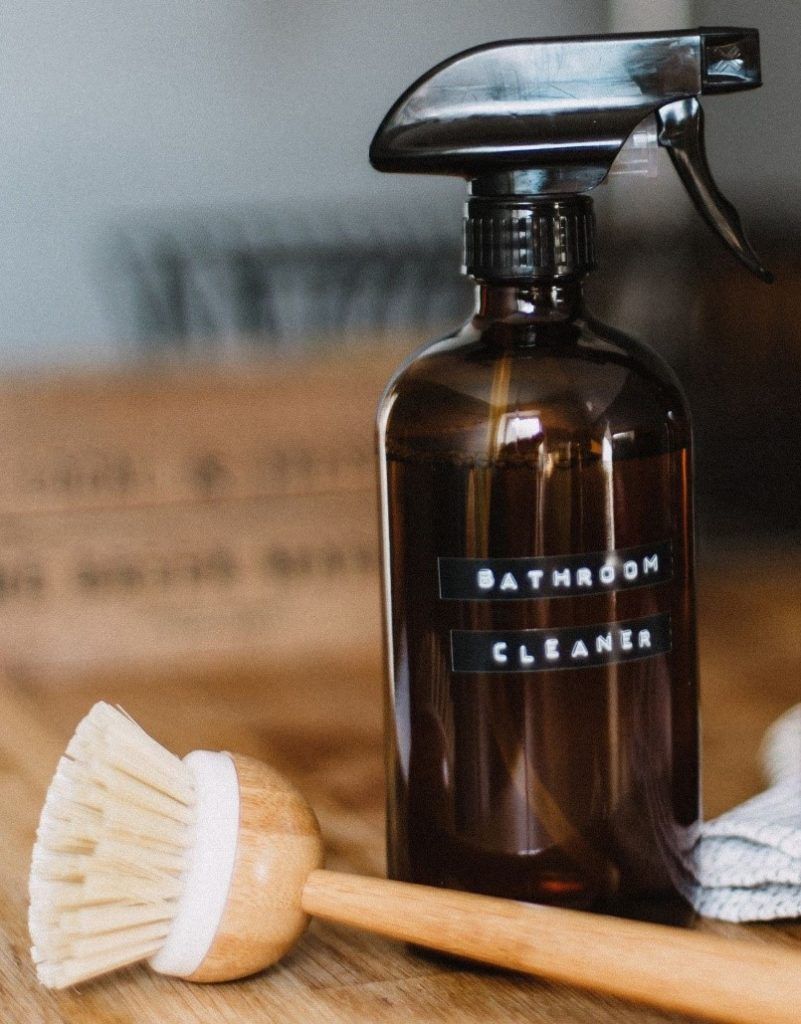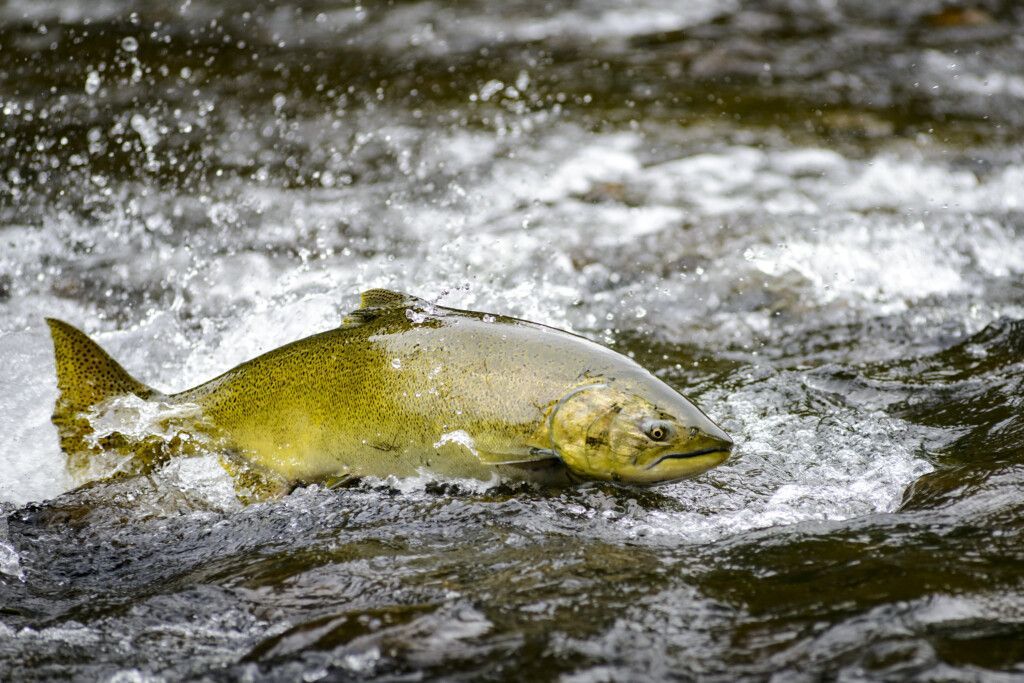
Since salmon and other aquatic species live and breathe in water they are particularly sensitive to any pollution that ends up in their home. Unfortunately, there are cleaning products with persistent chemicals (meaning they do not readily break down) that can pass through septic and wastewater treatment and pollute critical habitats.

Using food safe ingredients as effective cleaning agents keeps harmful chemicals from making their way to aquatic environments and harming salmon and the species they depend on.
Here are some safe alternatives that you can make yourself using items you probably already have on hand in the kitchen.
| Task | Alternative cleaners |
| Glass and surface | 1 part vinegar to 1-2 part water (optional a couple drops of non-petroleum based dish soap) |
| Floors (tile, hardwood, laminates and boat decks) | 1 part vinegar to 8 parts warm water a couple drops of non-petroleum based dish soap |
| Showers and tubs | Wet and scrub with baking soda |
| Toilets | Baking soda |
| Scouring | Baking soda and water paste |
| Furniture polishing (interior) | Olive oil |
| Stainless steel | Rub a rag with a few drops of olive oil and finish with a spray and wipe of glass and surface cleaner above |
| Laundry | 2 parts soap granules to 1 part baking soda and 1 part washing soda (2 Tbs per load) |
| Dish washer | 1 part baking soda to 1 part washing soda (1-2 Tbs per load) and 1 Tbs vinegar in the rinse dispenser |
Recipes are adapted from the Georgia Strait Alliance’s Guide to Green Boating and David Suzuki Foundation’s Queen of Green cleaning recipes. Also see this brochure that we hand out at events for the recipes and more.
Photo credit: Daiga Ellaby on Unsplash; Eiko Jones